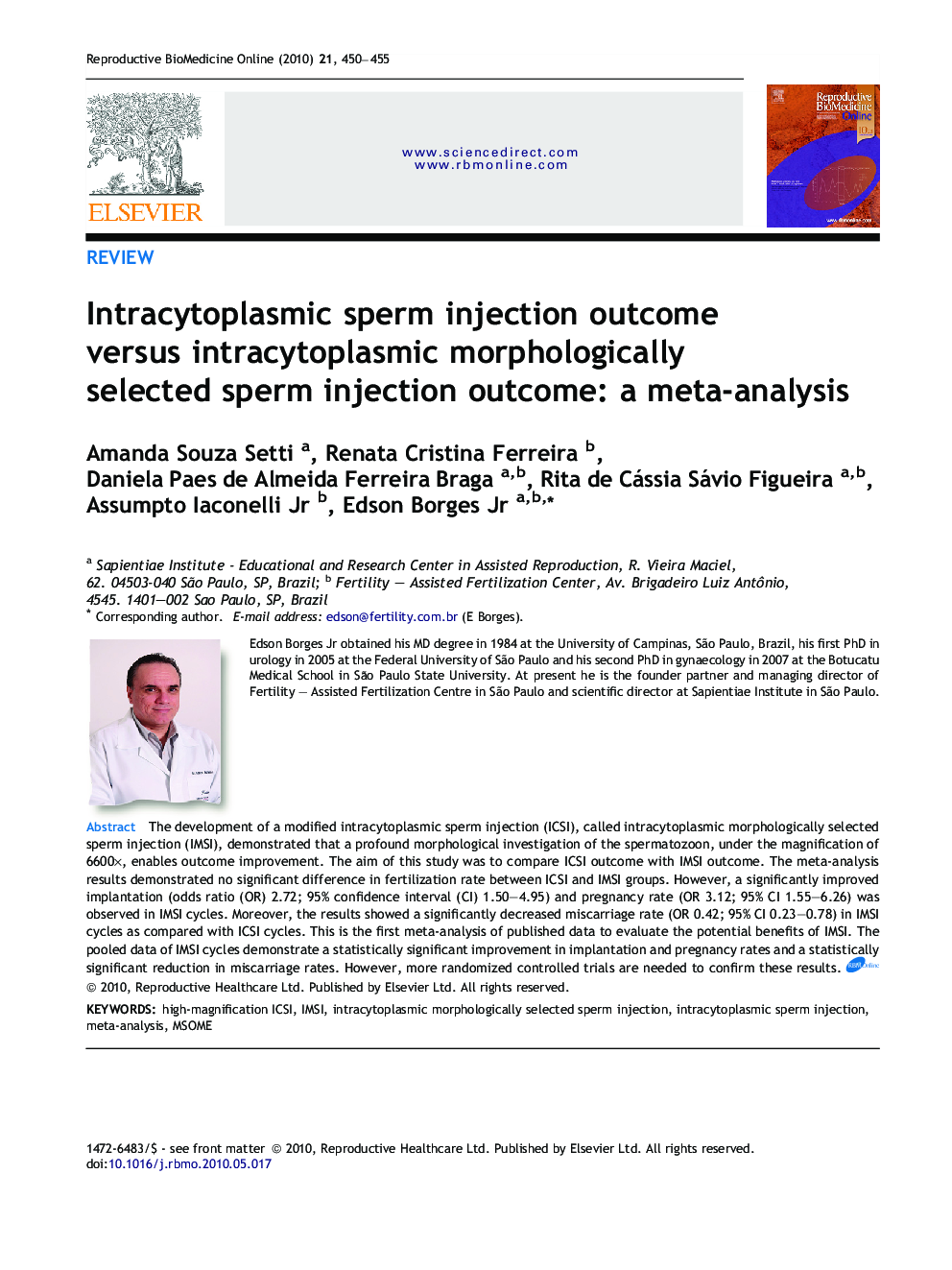| Article ID | Journal | Published Year | Pages | File Type |
|---|---|---|---|---|
| 3971569 | Reproductive BioMedicine Online | 2010 | 6 Pages |
The development of a modified intracytoplasmic sperm injection (ICSI), called intracytoplasmic morphologically selected sperm injection (IMSI), demonstrated that a profound morphological investigation of the spermatozoon, under the magnification of 6600×, enables outcome improvement. The aim of this study was to compare ICSI outcome with IMSI outcome. The meta-analysis results demonstrated no significant difference in fertilization rate between ICSI and IMSI groups. However, a significantly improved implantation (odds ratio (OR) 2.72; 95% confidence interval (CI) 1.50–4.95) and pregnancy rate (OR 3.12; 95% CI 1.55–6.26) was observed in IMSI cycles. Moreover, the results showed a significantly decreased miscarriage rate (OR 0.42; 95% CI 0.23–0.78) in IMSI cycles as compared with ICSI cycles. This is the first meta-analysis of published data to evaluate the potential benefits of IMSI. The pooled data of IMSI cycles demonstrate a statistically significant improvement in implantation and pregnancy rates and a statistically significant reduction in miscarriage rates. However, more randomized controlled trials are needed to confirm these results.The development of a modified intracytoplasmic sperm injection (ICSI) method, called intracytoplasmic morphologically selected sperm injection (IMSI), has enabled the improvement of pregnancy rates. The aim of this study was to perform a systematic review of the literature and compare the fertilization, implantation, pregnancy and miscarriage rates in ICSI and IMSI cycles. Our meta-analysis results demonstrated no significant difference in fertilization between ICSI and IMSI groups. However, implantation and pregnancy rates were almost 3-fold higher in IMSI cycles. Moreover, the miscarriage rate was more than 40% lower in IMSI cycles as compared with ICSI cycles. This meta-analysis demonstrates a significant improvement in implantation and pregnancy rates, and a significant reduction in miscarriage rates. However, further studies are needed to confirm our results.
